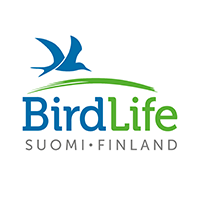Spatial ecology of the Red Kite (Milvus milvus) during the breeding period in Spain
Avainsanat:
GPS satellite telemetry, home range area, raptor, habitat use, reproductive movementsAbstrakti
Studies focusing on the spatial ecology of the Red Kite (Milvus milvus) during the breeding season are scarce, despite this season having major importance in its conservation. Spain has one of the largest breeding populations of this species, but it is very threatened in this country. Here, 28 Red Kites were tagged in Spain with GPS satellite transmitters to study the movements of breeding adults during the breeding season (March-June), evaluating the differences according to sex, and investigating the habitat selection. The area used by females was smaller than the used by males (95% KDE = 4.48 vs. 3.30 km2). Females also traveled less distance per hour and remained closer to the nest. Thus, females had a higher frequency of locations at distances <250 m from the nest, while males had a higher frequency at distances >1 km. Distances recorded at >5 km were scarce for both sexes, and maximum distances reached were usually (61% of seasons) less than 15 km. Both sexes increased the frequency of movements between 1–3 km during the central hours of the day. Red Kites mainly used areas occupied by non-irrigated arable land, forests, scrubs, and herbaceous vegetation. The selection of certain types of crops highlights the importance of the agroforestry landscape for the conservation of the species. On the other hand, we documented for the first time how part of the Spanish breeding population is a short-distance migrant within the Iberian Peninsula while other part of the population makes post-breeding movements during summer.
Viittaaminen
Copyright (c) 2022 Jorge García-Macía, Javier Vidal-Mateo, Javier de la Puente, Ana Bermejo, Vicente Urios

Tämä työ on lisensoitu Creative Commons Nimeä 4.0 Kansainvälinen Julkinen -lisenssillä.










